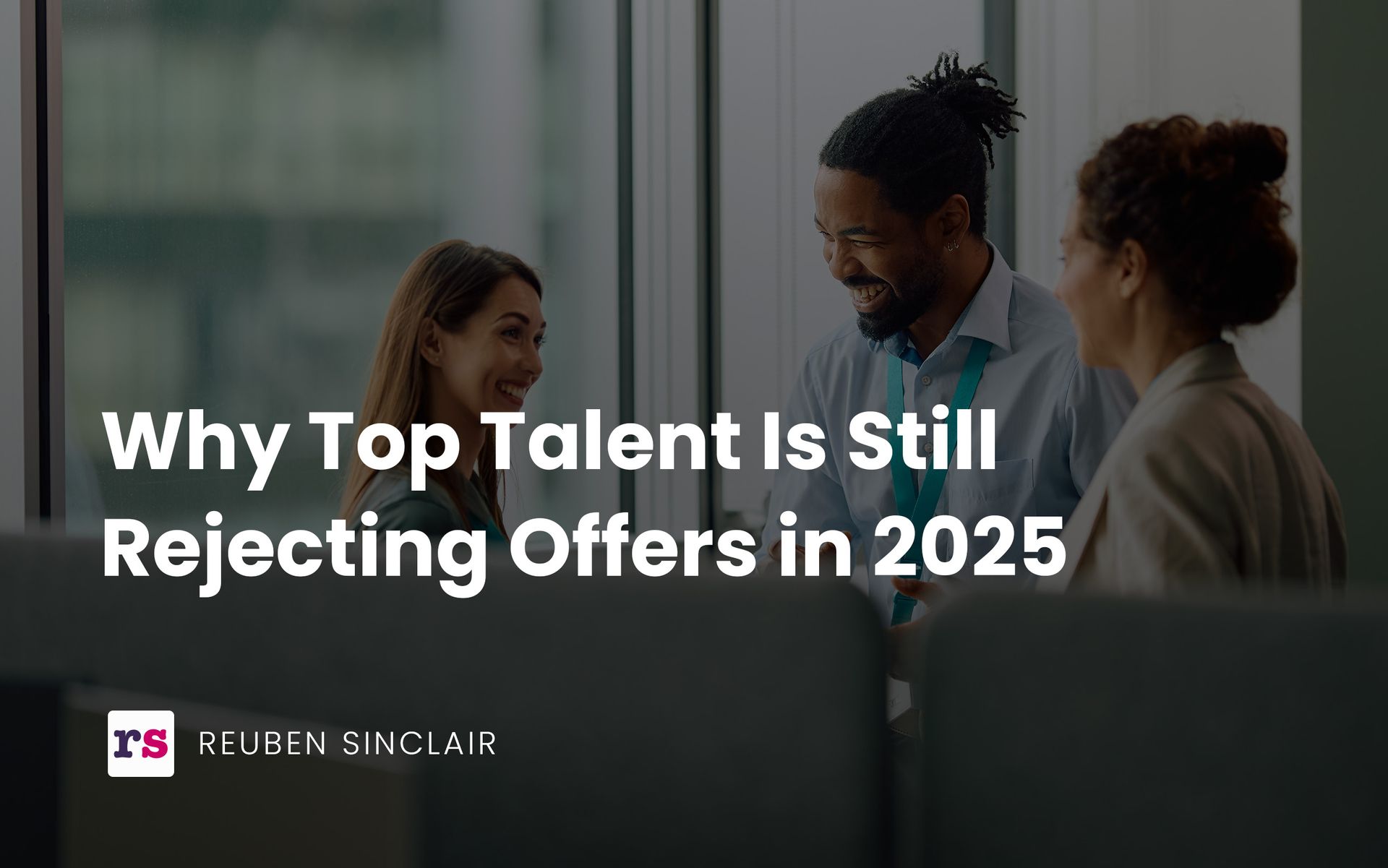Why Top Talent Is Still Rejecting Job Offers in 2025

Perception vs Reality: Why Top Talent Is Still Rejecting Offers in 2025
Despite what many employers may believe, we’re not in a purely employer-driven market. While the volume of active candidates might suggest otherwise, the reality is more complex — and it’s catching out hiring managers across every industry.
The Current Hiring Process Is A Misalignment of Expectations
Many companies are operating under the assumption that, due to a surplus of job seekers, they hold the upper hand. As a result, we’re seeing:
- Extended, multi-stage interview processes
- Salary offers lower than market expectations
- A mindset that “if one candidate declines, there are plenty more to choose from”
But here’s the reality: top candidates still have options — and they’re not afraid to walk away.
Why Candidates Are Saying “No”
Despite fewer job openings and a competitive landscape, quality candidates are rejecting offers when:
- The salary doesn’t match their expectations or previous earnings
- The interview process feels drawn-out, inefficient, or disorganised
- They feel undervalued during the process or in the final offer
This has created a disconnect. Employers believe they’re in control, yet many are missing out on the very talent they’re trying to attract.
The Disconnect Between Employers and Candidates
This isn’t a standard market fluctuation — it’s a more nuanced shift in candidate behaviour and expectations. Candidates may be more cautious in today’s market, but that doesn’t mean they’re willing to settle.
Meanwhile, companies who underestimate candidate expectations risk losing out on the best talent — not because the talent isn’t there, but because the experience isn’t compelling enough.
How to Bridge the Gap
If you’re hiring in 2025, here’s what matters now more than ever:
- Competitive, fair salaries: Align offers with current market benchmarks and candidate experience levels.
- Streamlined hiring processes: Efficiency and communication throughout the interview journey matter.
- Respect and value: The way candidates are treated during the hiring process reflects your company culture and values.
Ultimately, companies must adapt to a candidate-first mindset—without losing sight of their own hiring standards—and candidates must continue to advocate for their worth, while staying open to opportunity.
The recruitment landscape in 2025 is not black and white. It’s a market defined by nuance — where both employers and candidates need to reset expectations, communicate more effectively, and meet somewhere in the middle.
Have you experienced this disconnect in your hiring process or job search?
We’d love to hear your thoughts — get in touch or speak to one of our consultants today.











